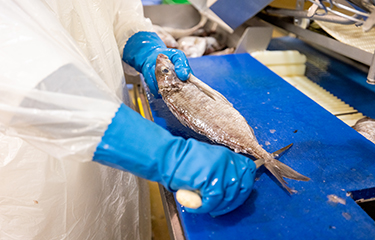Auckland, New Zealand-based Sanford Limited posted an improved financial performance for the six months ending 31 March, 2023.
The seafood company posted revenue of NZD 277.6 million (USD 173.6 million, EUR 161.1 million) for H1 2023, up 2.5 percent compared to the NZD 270.9 million (USD 169.3 million, EUR 157.2 million) it posted in H1 2022. The higher revenue coincided with a higher a net profit after tax of NZD 11.1 million (USD 6.9 million, EUR 6.4 million), up from NZD 6.1 million (USD 3.8 million, EUR 3.5 million) posted in H1 2022.
The company also posted a significant increase to its adjusted earnings before interest and taxes. Sanford earned NZD 26.6 million (USD 16.6 million, EUR 15.4 million) in H1 2023, a 38.7 percent increase over the NZD 19.2 million (USD 12 million, EUR 11.1 million) it posted in the same period last year. The increases all came on a drop in sales volume of 6 percent to 45,800 metric tons.
The “particularly strong” performance of Sanford's farmed salmon division, which posted a 45 percent increase in profit. Its wild-catch division posted flat numbers while its mussel segment “continues to lag expectations," Sanford CEO Peter Reidie said in a release
Sanford's farmed salmon sales earned strong pricing and demand and enjoyed lower mortalities due to new initiatives “such as pen relocation, increased net cleaning, and the option to add oxygenation when required.”
Its mussels production, however, was limited due to a lack of desired volumes – the company saw a 13 percent reduction in sales volumes in H1 2023 compared to H1 2022.
“Holding us back has been the slow commissioning of our new bioactives (marine extracts) plant, labor shortages in our processing plant in Havelock, and difficult weather patterns which have impacted mussel growth,” Reidie said. “We are optimistic these three factors will improve in H2 2023.”
Overall, the company’s trajectory is much improved following its struggles during the Covid-19 pandemic. The company’s profits plunged by almost 50 percent after the onset of the pandemic, but Reidie said the company has seen “encouraging growth in global sales.”
“There is strong demand across the board,” he said. “This ranges from our highly valued scampi and salmon to more everyday products such as hoki and squid. We have seen record pricing in the period for all these species and more.”
Reidie added that the positive numbers hide the fact that the company has still been struggling with labor shortages and cost pressures that have kept it from returning to pre-Covid levels of profitability.
Alongside the positive results, the company also announced in a separate release that it agreed to sell the annual catch entitlement (ACE) for most of the quota for North Island inshore species to Moana New Zealand through a new long-term agreement. The new agreement, which has a minimum term of 10 years, will see Sanford offload two of its inshore fishing vessels and “a selection of its processing equipment and refrigerated vehicles/trailers.”
Sanford said the sale will help simplify its operations and establish a “lower-risk passive revenue stream” for its North Island ACE. The value, according to Sanford, starts at nearly NZD 11 million (USD 6.8 million, EUR 6.3 million) annualized for the first year, and scales up to NZD 13 million (USD 8.1 million, EUR 7.5 million) over the next five years, before increasing in fixed increments of 1.5 percent per annum.
The equipment deal, meanwhile, will net Sanford between NZD 5 million and NZD 8 million (USD 3.1 million and USD 5 million, EUR 2.9 million and EUR 4.6 million).
Sanford will retain ownership of the quota, but Reidie said in a release the deal will help turn around the company’s North Island inshore operations.
“We signaled some time ago that we have been looking at ways to turn around this part of our operations. The long-term agreement with Moana will enable them to fish and process inshore species at scale,” he said. “Sanford’s North Island inshore operations represent a relatively small part of our business, but this proposed deal will reduce the negative impact these operations are currently having on Sanford’s bottom line.”
The sale will result in the closure of Sanford’s fish-processing plant in Auckland, New Zealand, and Sanford said it plans to work with Moana to “facilitate the employment of affected staff where practicable.” The closure of its plant in Auckland is the company's second plant closure in three years – the company closed its Tuaranga, New Zealand plant in August 2020 due to depressed fishing totals during the pandemic.
The transaction is still subject to regulatory approval. Sanford sait it is expected to close in Q4 2023.
Photo courtesy of Sanford Limited







